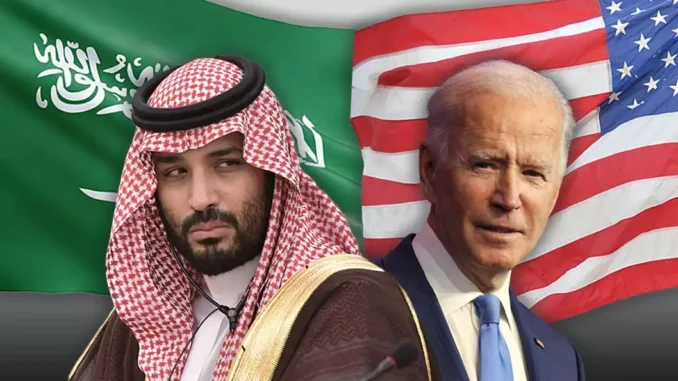“I view Iran as the most destabilizing force in the Middle East. The United States’ position is that we will not allow a nuclear Iran. However, our concerns about Iran go beyond its nuclear capability,” says Maj. Gen. Michael Kurilla

Then-Lt. Gen. Michael E. Kurilla testifies before the Senate Armed Services committee during his confirmation hearing on Capitol Hill in Washington, Tuesday, Feb. 8, 2022, to be general and commander of the US Central Command | Photo: AP/Susan Walsh
Iran is “the number one destabilizing factor” in the Middle East, commander of United States Central Command Maj. Gen. Michael Kurilla told Dubai-based Arabic television news channel Al-Arabiya on Thursday.
Kurilla, who was on a tour of Saudi Arabia and Egypt as part of what he called a “listening tour,” told Al Arabiya on Thursday that countering the threat posed by Iran required regional cooperation.
“I view Iran as the most destabilizing force in the Middle East. The United States’ position is that we will not allow a nuclear Iran. However, our concerns about Iran go beyond its nuclear capability,” said Kurilla, who took command of CENTCOM last month.
Describing Iran’s ballistic missile program and its support for armed proxies and Iran-backed militias in the region as other concerns for the US, Kurilla said, “The Iranian threat requires a firm effort from us and our security partners in the region… CENTCOM is committed to that effort.”
Asked about Iran-backed Houthi rebel attacks on Saudi Arabia and the United Arab Emirates, with the support of weapons being smuggled in, he said: “We are concerned about the smuggling of advanced conventional munitions by sea to support Houthi operations. Therefore, anti-smuggling operations with the Royal Saudi Naval Forces will serve as an area of focus for me.”
“This visit to the CENTCOM region… is largely an opportunity to glean insights from our partners here. In so doing, I’m looking for gaps, risks, and opportunities in security for our partners and for the region,” Kurilla added.

Saudi Crown Prince Mohammed bin Salman and US President Joe Biden (AFP, EPA)
His predecessor, Gen. Kenneth F. McKenzie, said during his farewell visit before stepping down that the Islamic republic was the region’s “principal bad actor” and “biggest threat to security.” “The tone in my engagements in Egypt, the Kingdom of Saudi Arabia, and UAE was frank and stark; our partners are concerned about our long-term commitment to the region,” Kurilla told reporters traveling with him on Friday.
Kurilla, 55, commanded the 18th Airborne Corps, including the US Army’s response forces at Fort Bragg, North Carolina prior to his new role, and before that was CENTCOM’s chief of staff.
In the Gulf, Washington has stoked tensions with Riyadh and Abu Dhabi by failing to satisfy their concerns about regional rival Iran, for ending its support for their war in Yemen, and slapping conditions on US weapons sales.
Over time, the United States has also significantly reduced the number of troops in the region, including naval forces.
Mistrust in the Middle East more broadly has built up since the 2011 Arab uprisings when Gulf rulers were shocked at how the administration of then-US President Barack Obama abandoned the late Egyptian President Hosni Mubarak after a 30-year alliance, allowing him to fall and ignoring the concerns of Gulf rulers over the rise of the Muslim Brotherhood.
Washington’s commitment to its military partners in the Middle East is “unwavering” and “ironclad,” Kurilla said. “We have been and remain committed to the Middle East.”
Kurilla’s visit to Cairo came less than four months after the Biden’s administration announced it would cut $130 million in military aid to Egypt over human rights concerns. It was a rare censure of a strategic ally that controls the Suez Canal.
Kurilla, who also met Egyptian President Abdel Fattah al-Sisi, stressed the United States was a dependable ally.
Subscribe to Israel Hayom’s daily newsletter and never miss our top stories!
“I visited three countries with which we have strategic partnerships. My message in all three countries: the United States is a reliable partner here and this relationship is strong,” Kurilla said.
In the United Arab Emirates, Kurilla met with de facto ruler Abu Dhabi Crown Prince Mohammed bin Zayed, known as MbZ. Reuters has reported that Biden irked MbZ by not calling swiftly after the Houthis attacked UAE in January and by not responding more forcefully.
Kurilla said his assessment would include “gaps” in such relationships.
In Saudi Arabia, Kurilla held talks with military officials including Saudi Arabia’s Deputy Defence Minister Khalid bin Salman. “The Kingdom is poised for the future and I look forward to a continued military partnership,” he said.



Leave a Reply
You must be logged in to post a comment.